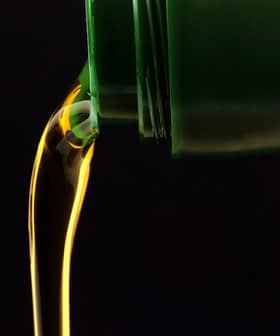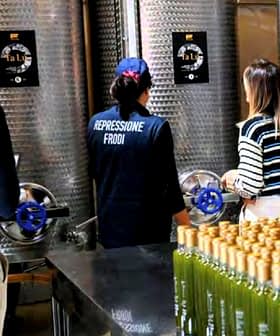Poor Harvests Lead to More Vigilance in Canada
The Canadian Food Inspection Agency is warning consumers to be on the lookout for fraudulently labeled olive oil in light of the poor European harvest this year.
The Canadian Food Inspection Agency is expecting an increase in sales of substandard olive oils due to poor harvests in Italy and other regions this season, prompting a 12-month investigation starting in April to detect products cut with cheaper oils like peanut or sunflower oil. This comes after a failed program two years ago, but the Canadian government is taking action to prevent deceptive practices and ensure traceability of ingredients in food products.
The Canadian Food Inspection Agency (CFIA) is anticipating an increase in sales of substandard olive oils after the disappointing harvest in Italy and other regions this season.
In April, the CFIA will launch a 12-month investigation to hunt for olive oil products that may be cut with cheaper oils such as peanut or sunflower oil.
See Also:Olive Oil FraudThe olive oil harvests in Italy, Greece and Portugal have suffered this season, due in large part to climate change and the damaging effects of the Xylella fastidiosa pathogen in Italy. Italy’s harvest is at a 25-year-low and experts have warned the Mediterranean country may run out of olive oil as early as April.
The CFIA carried out a program two years ago, which failed to detect any signs of olive oil fraud. However, the Canadian government is choosing to conduct another investigation this year in light of the poor European harvest.
If a CFIA inspector suspects a given oil may be fraudulently labeled, he or she can order a lab test. If results are positive, the product may need to be relabeled, held or recalled from store shelves and the offenders may be prosecuted.
A mandatory traceability law passed in January demands that anyone selling a food product be aware of the source of the ingredients.
In addition to being deceptive, mislabeled oil can pose an allergen risk if it has been blended with peanut oil or other unlisted ingredients.
Once purchased, the taste and smell of the olive oil can be further indicators of the quality. If the olive oil seems unusually cheap, it should raise concerns.
In 2017, Brazil found that 64 percent of the olive oil samples analyzed over the preceding two years were not up to labeling standards. Companies were found to have adulterated olive oil with cheaper oils, such as soybean oil and lampante oil, which is not deemed fit for human consumption.
A test carried out last year by Spain’s Organización de Consumidores y Usuarios found that half the national olive oils marketed as extra virgin failed to meet the standards.
While North America has seen instances of fraudulent olive oil in the past, Dalhousie food expert Sylvain Charlebois told Global News he predicts that in Canada, at least, these numbers are dropping due to increased CFIA testing.







